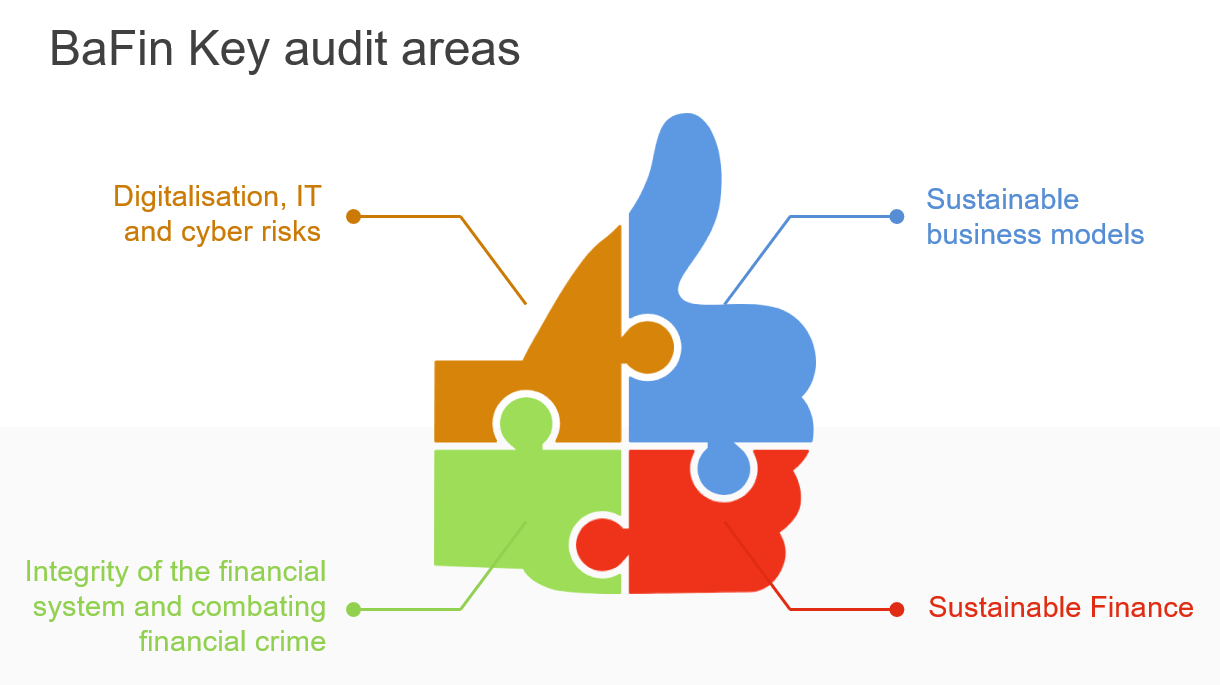Money laundering prevention
6th EU Money Laundering Directive – Overview of changes:
The 6th EU Directive 2018/1673 of 23 October 2018 further tightened the criminal law fight against money laundering.
To this end, 24 recitals are cited for improved prevention against money laundering, terrorist financing and proliferation financing.
The directive is to be implemented by 3 December 2020.
Our courses
Fit and proper for anti money laundering
- Tasks, rights and duties as a money laundering officer
-
Supervisory examinations: New requirements for the
Money Laundering Prevention in Practice
Update for anti money laundering
- Organisational Handbook: Anti-Money Laundering and Fraud System
-
Practical guide and checklists for auditing complex money laundering structures
-
Implementation Roadmap on the Money Laundering Act

Can the criminal complaint replace a SAR under Section 43 AMLA?
Current OLG ruling on the immediacy of suspicious activity reports § 43 AMLA – avoid fines against money laundering officers! The Frankfurt Higher Regional Court (OLG) has issued 5 current guiding principles on the immediacy of suspicious activity reports and the duty of care as a money laundering officer. You can find an overview of the judgement of the OLG Frankfurt directly in our information blog “Fines against money laundering officers in case of breach of duty” or in seminars Money Laundering Officer.
According to the explanatory memorandum to the law, the duty to report under Section 43 (1) AMLA is a duty under trade law. In contrast to the criminal report under Section 158 of the Code of Criminal Procedure, it is subject to a formal requirement like other reporting obligations under trade law.
The obligation to report under Section 43(1) AMLA does not mean that there is also an obligation to report an offence under Section 261(9) of the Criminal Code in relation to the underlying facts (Section 43(4) AMLA). A duty to report within the meaning of the StGB exists exclusively with regard to the offences mentioned therein in section 138 StGB under the conditions specified therein.
(Suspicious) reports under sections 43 and 44 are not criminal charges under section 158 (1) of the Code of Criminal Procedure (cf. inter alia BT-Drs. 17/6804, p. 35, still on section 11 (1) AMLA-alt; BT-Drs. 18/11928, p. 40).
The legislator did not draw a clear distinction. Primarily, the deviating degree of suspicion and the formal requirement that only exists in connection with reports under the AMLA were cited as arguments against the legal classification as a criminal report in the explanatory memorandum to the law.
You can find further explanations in our information blog Suspicious Activity Report and Criminal Report? and seminars Money Laundering Officer. You will receive an implementation guide on the stricter liability regulations of the 6th EU Money Laundering Directive with seminars on money laundering officers.